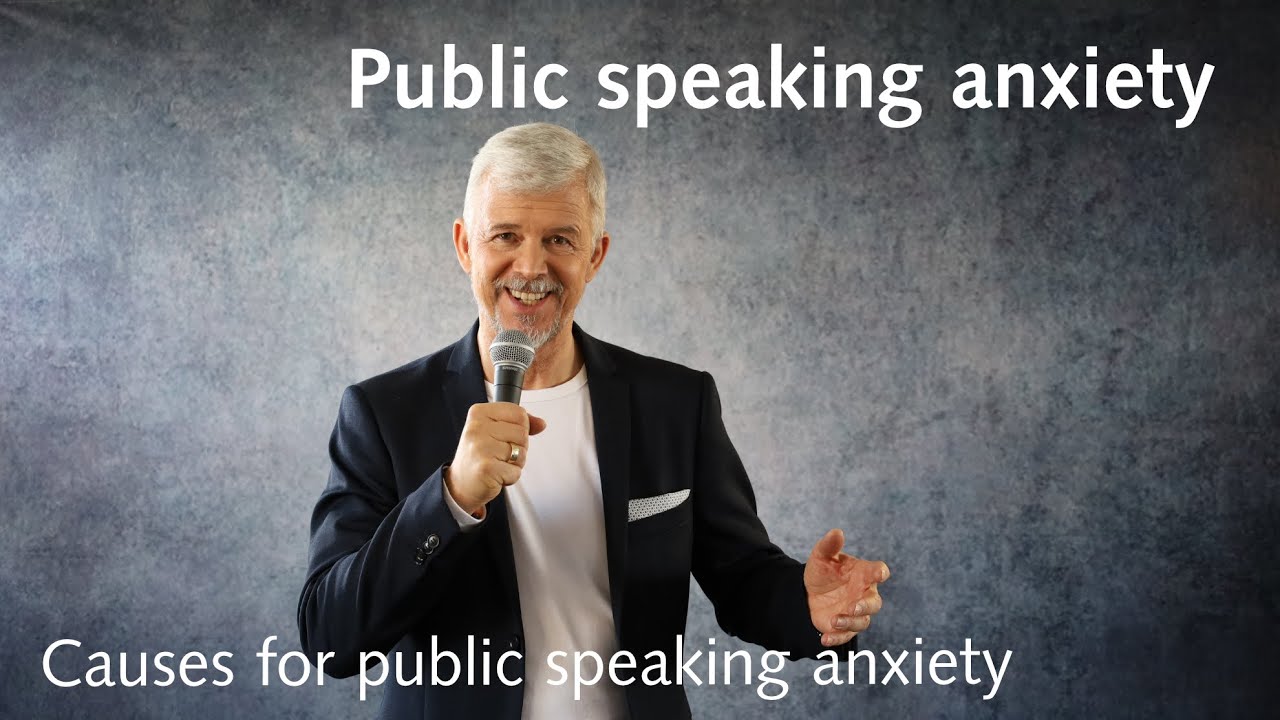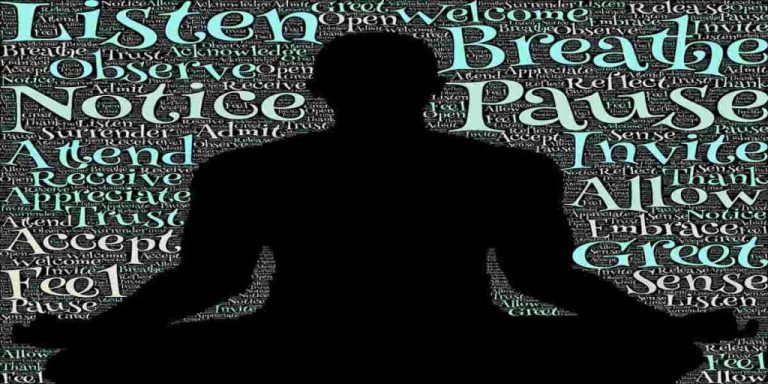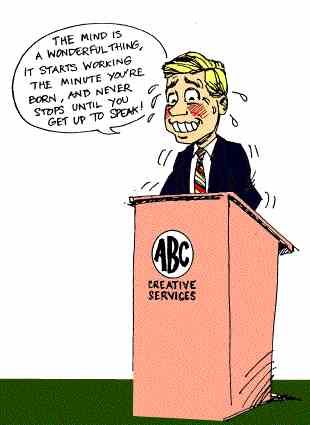What Causes Public Speaking Anxiety?
Public speaking anxiety is caused by a fear of judgment and failure when speaking in front of a crowd. This fear can stem from past negative experiences or a lack of confidence in one’s speaking abilities.
Many individuals experience nervousness, accelerated heart rate, and sweating when faced with public speaking, which further exacerbates the anxiety. Additionally, the fear of public speaking can be fueled by the pressure to perform well, the fear of forgetting or stumbling over words, and the worry of being humiliated in front of others.
These factors contribute to the development of public speaking anxiety, making it a common fear among people from various backgrounds and professions. However, with proper techniques and practice, individuals can overcome this anxiety and become effective public speakers.
Understanding Public Speaking Anxiety
Public speaking anxiety is a common fear among individuals. It refers to the intense fear and nervousness associated with speaking in front of an audience. This fear can be debilitating, causing individuals to experience physical symptoms like a racing heart, sweating, and trembling.
The significance of public speaking anxiety lies in its impact on a person’s life. It can hinder career growth, limit opportunities for advancement, and affect personal relationships. The prevalence of this anxiety is surprisingly high, with many people experiencing varying degrees of discomfort when faced with public speaking engagements.
The impact of public speaking anxiety is far-reaching, potentially leading to missed opportunities and decreased self-confidence. Understanding why public speaking anxiety occurs is essential in finding effective ways to manage and overcome this fear.
Psychological Factors Contributing To Public Speaking Anxiety
Public speaking anxiety is often caused by psychological factors. One major contributor is the fear of judgment and rejection. Individuals worry about what others will think of their performance and fear being criticized or humiliated. This can lead to performance anxiety and self-doubt, as they constantly question their abilities.
Negative self-talk and low self-esteem further exacerbate the anxiety, as individuals suffer from self-criticism and feelings of inadequacy. These psychological factors create a vicious cycle of anxiety, making public speaking a daunting task for many. It is important to address these factors and work on building confidence and self-belief to overcome public speaking anxiety.
Environmental Factors Contributing To Public Speaking Anxiety
Environmental factors can contribute to public speaking anxiety. One of these factors is the fear of speaking in front of large audiences or at public events. This fear can stem from a lack of confidence or self-esteem when it comes to speaking in public.
Another environmental factor is the lack of preparation and unfamiliarity with the topic being presented. When individuals are not well-prepared or knowledgeable about the subject matter, it can intensify their anxiety. Additionally, pressure from authority figures or high stakes situations can also contribute to public speaking anxiety.
The fear of judgment or criticism from these influential individuals can create a sense of unease and nervousness. Overall, these environmental factors play a significant role in causing public speaking anxiety, and understanding them can help individuals address and overcome their fears.
Physiological Factors Contributing To Public Speaking Anxiety
Public speaking anxiety is often characterized by physical symptoms such as sweating, trembling, and a rapid heartbeat. These physiological factors can exacerbate the anxiety experienced by individuals. The fight or flight response, which is triggered during stressful situations like public speaking, can have a significant impact on the body.
This response releases stress hormones, heightening arousal and increasing heart rate and blood pressure. It can also lead to muscle tension and shortness of breath, further intensifying the anxiety felt. Understanding these physiological factors is crucial in addressing and managing public speaking anxiety.
By learning techniques to regulate the body’s response, individuals can mitigate the physical symptoms and gain more confidence in their public speaking abilities. It’s important to recognize that public speaking anxiety stems from a combination of psychological and physiological factors, and addressing both aspects is key to overcoming this common fear.
Cognitive Factors Contributing To Public Speaking Anxiety
Public speaking anxiety can stem from cognitive factors such as catastrophic thinking and anticipation of worst-case scenarios. This anxious thought pattern leads individuals to envision disastrous outcomes. Additionally, perfectionism and the fear of making mistakes contribute to the fear of public speaking.
The constant pressure to meet unrealistic standards intensifies anxiety. Negative past experiences also play a role, as they create anxiety triggers associated with speaking in public. These experiences can be ingrained in our minds, making future speaking engagements nerve-wracking. Understanding the cognitive factors that contribute to public speaking anxiety is crucial in helping individuals overcome their fear and develop effective strategies to manage their anxiety.
By addressing these underlying factors, individuals can gain confidence and deliver powerful presentations.
Social Factors Contributing To Public Speaking Anxiety
Public speaking anxiety is often caused by social factors influencing individuals’ fear of public speaking. One such factor is the pressure to meet social expectations when presenting to an audience. Comparing oneself to others who are perceived as confident speakers can also contribute to this anxiety.
Moreover, cultural and societal beliefs about public speaking can further perpetuate the fear individuals experience. These beliefs encompass the idea that speaking publicly is a daunting and difficult task. By understanding the social factors that contribute to public speaking anxiety, individuals can better address and overcome their fears, leading to improved confidence and performance in public speaking situations.
Coping Strategies For Public Speaking Anxiety
Public speaking anxiety can be caused by various factors such as fear of criticism, judgment, or embarrassment. Coping with this anxiety is crucial for individuals who need to deliver presentations or speeches. One effective strategy is to practice breathing exercises and relaxation techniques, which help in reducing stress and promoting calmness.
Additionally, cognitive restructuring and positive self-talk can prove beneficial by challenging negative thoughts and replacing them with positive affirmations. Exposure therapy and gradual desensitization is another approach that involves facing fears gradually and repeatedly to diminish their impact over time.
By implementing these coping strategies, individuals can gain more confidence and become better equipped to handle public speaking anxiety.
Seeking Professional Help For Public Speaking Anxiety
Public speaking anxiety can be overwhelming for many individuals. Therapists and psychologists play a crucial role in treating this condition. Cognitive-behavioral therapy (CBT) is one therapy option that can help individuals overcome their anxieties. In severe cases, medication and other interventions may also be recommended.
These professionals provide a supportive environment for individuals to address their fears and develop coping strategies. Their expertise enables them to identify the root causes of public speaking anxiety and provide appropriate treatment. Through therapy sessions, individuals can learn techniques to manage anxiety, such as deep breathing exercises and positive self-talk.
The goal is to gradually increase confidence and reduce anxiety when engaging in public speaking. Seeking professional help is an important step towards overcoming public speaking anxiety and improving overall well-being.
Overcoming Public Speaking Anxiety: Tips And Techniques
Public speaking anxiety stems from various factors, including fear of judgment and criticism. It can be overcome by consistent practice and thorough preparation. Visualizing successful presentations and mentally rehearsing them can boost confidence. Gradual exposure to public speaking situations and celebrating small achievements helps build self-assurance.
By avoiding commonly overused phrases and opting for concise sentences, this post offers practical tips to help individuals overcome public speaking anxiety. Whether it’s focusing on practice and preparation or utilizing visualization techniques, these strategies empower individuals to confidently deliver presentations.
No matter the level of anxiety, there are ways to conquer this fear and become an effective public speaker.

Credit: www.psychologytoday.com
Frequently Asked Questions On What Causes Public Speaking Anxiety?
What Are 3 Causes Of Speech Anxiety?
Speech anxiety, also known as glossophobia, can be caused by multiple factors. Firstly, the fear of judgment is a common cause. People worry about being harshly evaluated by their audience, which can result in feelings of anxiety and self-doubt. Secondly, lack of preparation can contribute to speech anxiety.
When individuals are ill-prepared or have not practiced their speech thoroughly, they may fear forgetting important points or stumbling over their words, leading to heightened anxiety. Lastly, past negative experiences can also trigger speech anxiety. A previous speech that went poorly or resulted in embarrassment can create a fear of repeating those same mistakes.
By understanding these causes, individuals can take steps to address and overcome their speech anxiety.
Why Do I Get Anxiety When Public Speaking?
Public speaking anxiety is a common experience due to various reasons. The fear of judgment, fear of embarrassment, and fear of making mistakes contribute to the increased anxiety. It occurs when you focus too much on yourself and worry about what others think of you.
The body’s natural response is the release of stress hormones, which can manifest as physical symptoms like rapid heartbeat, sweating, trembling, and shortness of breath. These symptoms further intensify the anxiety, creating a vicious cycle. Lack of preparation, negative self-talk, and a past negative experience can also contribute to anxiety.
To overcome this anxiety, it helps to practice and prepare thoroughly, adopt positive self-talk and visualization techniques, and gradually expose yourself to speaking in public. Seeking support from a therapist or joining a public speaking class can also be beneficial in managing and reducing anxiety.
Remember, with practice and support, you can conquer your fear and gain confidence in public speaking.
How Do I Stop Public Speaking Anxiety?
To stop public speaking anxiety, practice is key. Start by preparing and rehearsing your speech thoroughly. Familiarize yourself with the topic and know your material inside out. Take deep breaths and use relaxation techniques to calm your nerves before speaking.
Visualize yourself giving a successful presentation, boosting your confidence. Begin with a strong opening to engage the audience and maintain eye contact throughout. Pay attention to your body language, speaking slowly and clearly. Use visual aids like slides or props to enhance your message.
Embrace mistakes or stumbles, as they are part of the learning process. Practice speaking in front of small groups or join a public speaking club to gain experience. With time and practice, you will overcome your anxiety and become a more confident public speaker.
What Are The Five Common Reasons For Speakers Nervousness?
Speakers often experience nervousness due to five common reasons. First, lack of preparation and practice can make them anxious. Second, fear of public speaking and being judged by the audience can cause nervousness. Third, the pressure to deliver a flawless performance can lead to anxiety.
Fourth, the fear of forgetting important points or stumbling over words can contribute to nervousness. Finally, the lack of confidence in one’s abilities can increase nervousness. To overcome these challenges, speakers can focus on thorough preparation, adopt relaxation techniques, visualize success, and gradually build confidence through practice.
By addressing these common reasons, speakers can improve their communication skills and deliver impactful presentations with ease.
Conclusion
Understanding the causes of public speaking anxiety can help individuals overcome their fears and become more confident speakers. It is a common fear that can arise from a variety of factors, including a lack of confidence, fear of judgment, or a past negative experience.
Overthinking, lack of preparation, and an overwhelming focus on perfection can also contribute to anxiety. However, by identifying and addressing these underlying causes, individuals can take steps to reduce their anxiety and improve their public speaking skills. Building self-confidence, practicing with supportive audiences, and utilizing relaxation techniques can be effective strategies in managing anxiety.
Additionally, seeking professional help through therapy or public speaking courses can provide valuable guidance and support. Remember, public speaking anxiety is a common challenge, but with the right strategies and mindset, anyone can harness their inner speaker and conquer their fears.




